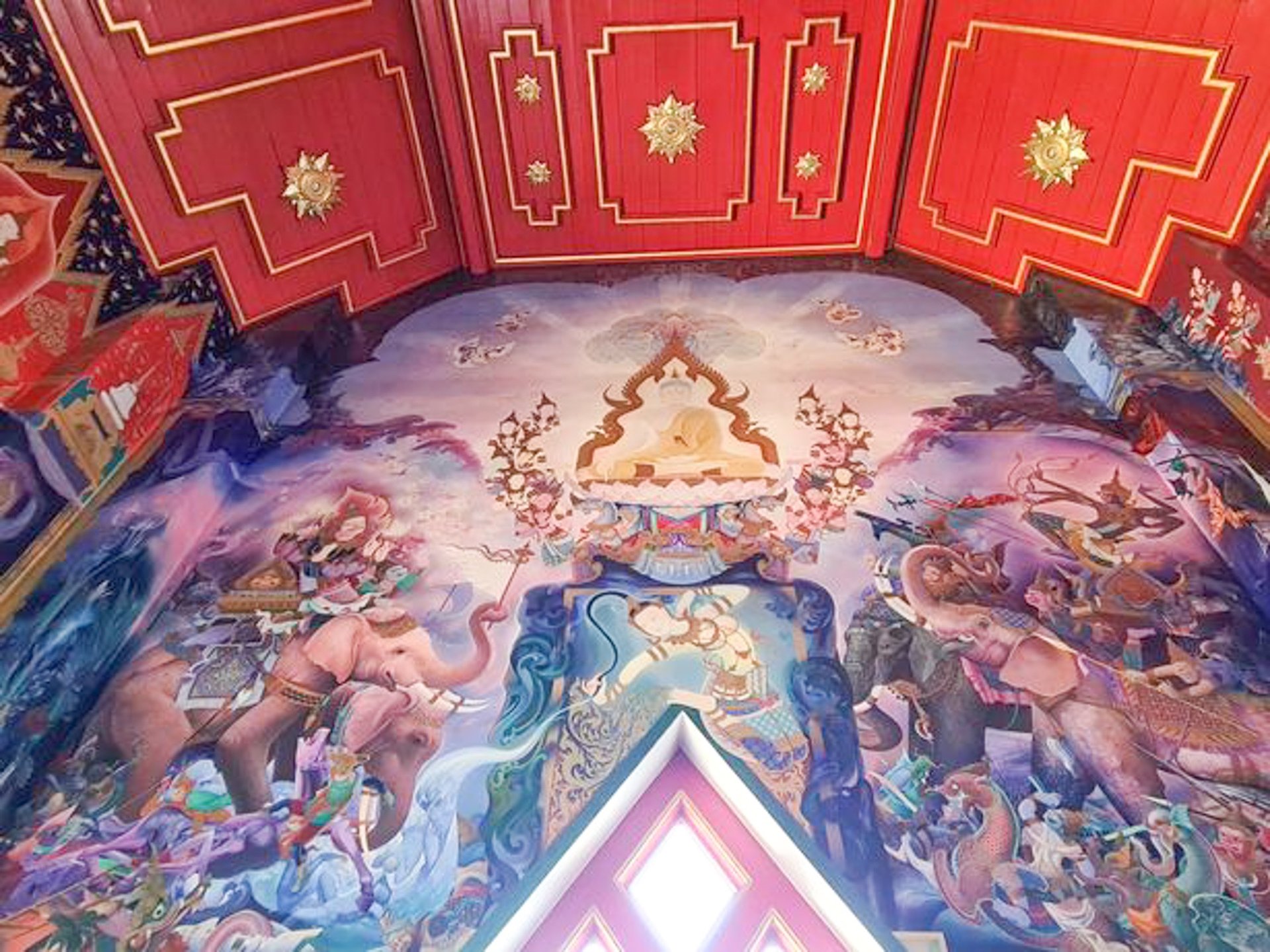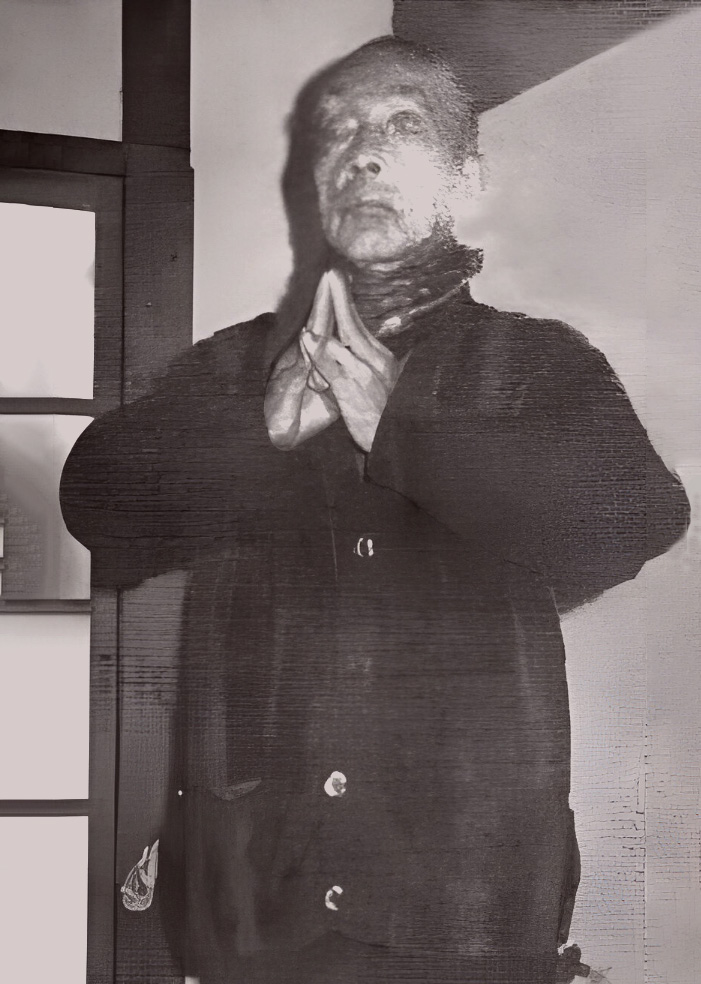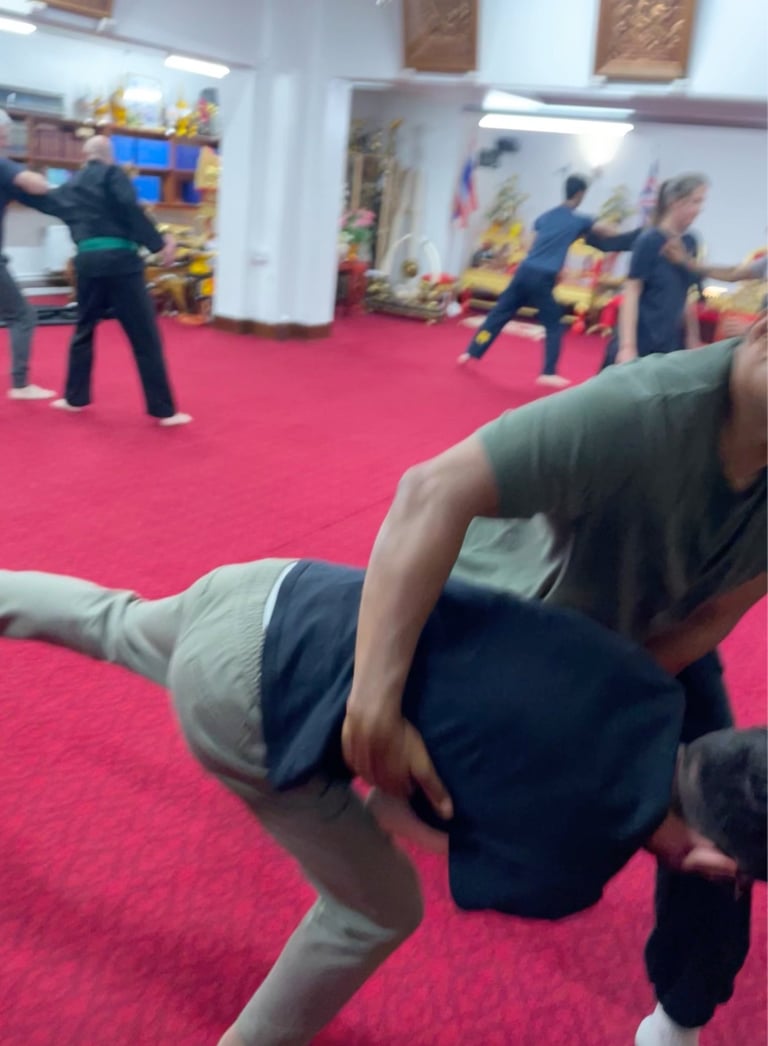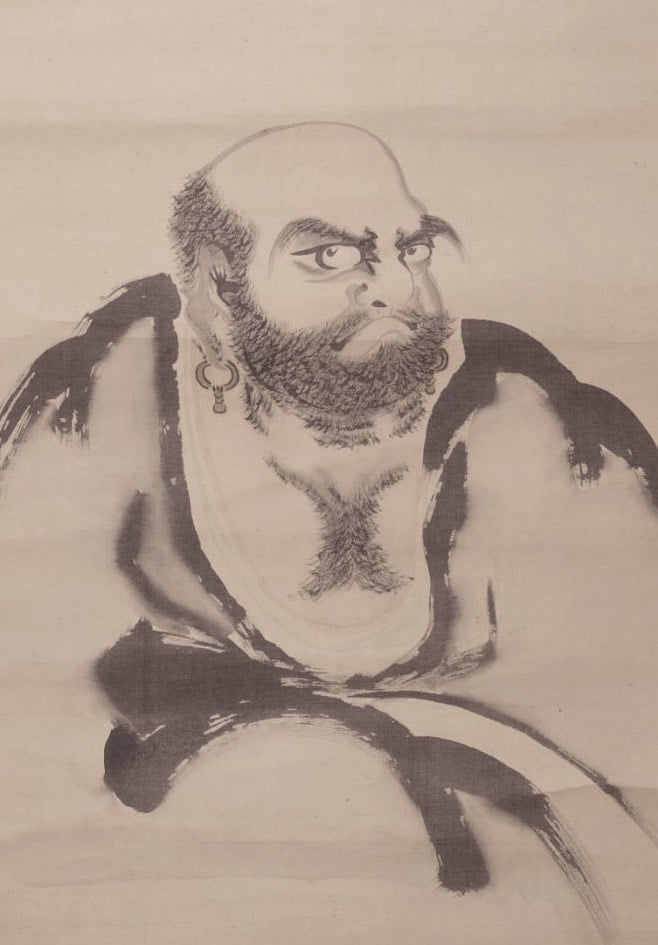Class Overview, Schedule and More
Training for personal, martial, and holistic growth in a comfortable and friendly atmosphere
稽古に参加

Dedicated to Authentic Training
Empowering the Community Through Authentic Bujinkan Training Rooted in Humility, Harmony, and Service


Class Overview
Our classes offer more than physical training—they are a space to grow as a whole person in multiple ways. In the authentic Bujinkan tradition, training is rooted in three principles:
Ten (Heaven): self-development, mental clarity, and spiritual growth. Chi (Earth): martial skills and practical self-defence for real situations. Jin (Human): health and well-being, though Amatsu insights.
While most modern martial arts focus only on fighting, we emphasise all three areas, merging into a complete human being. Our approach is open and flexible: take what resonates, leave what doesn’t, and progress at your own pace.
Martial arts are not about fighting or technique, but a path to “develop a pure heart” (Hatsumi Sensei), We share this practice as a gift to you for the greater good. and beyond.
使命と価値観


Class Overview
Our class offers more than just physical training—it’s a space to cultivate your inner self, survival abilities, and well-being. We provide sincere Ninjutsu training, rooted in Spiritual (Ten), Martial (Chi), and Healing (Jin) principles in the authentic Bujinkan tradition:
Self-Development (Ten): Spiritual, mental, and personal progress.
Martial Arts Skills (Chi): Survival abilities for all real-life challenges.
Holistic Well-being (Jin): Health benefits through our Amatsu insights.
The integration of these three areas of holistic growth enables you to develop into a complete human being and become a force for good
使命と価値観
Self-Development
Evolve your internal mental and spiritual awareness, to enrich your vision and conscious development for inner growth
Martial Arts Skills
Develop survival abilities to protect yourself against any real-life danger, including single or multiple armed or unarmed opponents
Health & Well-Being


Acquire Amatsu notions to deepen your understanding of your spiritual and martial progress, and to nurture your well-being

Authentic Ninjutsu
Taught in the original Japanese ‘shinden heart-feeling’ form, going beyond techniques to develop a pure heart
Enlightening Place
A sacred space fostering internal self-development, safe learning and a truly harmonious atmosphere
Charitable 100% Free



Train without cost, with classes currently free with donations supporting charity making your growth a force for change
About Bujinkan Ninpo Taijutsu, Ninjutsu Training
The Bujinkan is a traditional Japanese martial arts system comprising nine schools, mostly Ninjutsu and other Samurai lineages. Their origins stretch back to ancient times. Some schools were secretive and reserved for select practitioners, others part of the Imperial military heritage.
Grandmaster Masaaki Hatsumi Sensei collected these schools under the name Bujinkan Ninpo Taijutsu. The principles of Ninjutsu center on avoiding conflict whenever possible and resolving disputes peacefully. The goal is not to master fighting techniques but to find unity with nature, through non-violent and conflict-free practices. As such, we cultivate our hearts, through good Dharma, a central aspect of the Eastern traditions, and on Bodhidharma, the founder of Oriental martial arts.
武神館武道
Unlike martial arts focused on one skill like striking or grappling, Bujinkan teaches all approaches together and beyond. Whether facing armed or unarmed opponents, single or multiple attackers, Bujinkan teaches how to overcome any encounter—ideally peacefully—without relying on strength or athleticism, making it effective regardless of age, gender, or physical ability.
The nine martial arts included in Bujinkan training are:
Togakure-ryu
Gyokko-ryu
Koto-ryu
Shindenfudo-ryu
Kukishinden-ryu
Takagi Yoshin-ryu
Gikan-ryu Koppo
Kumogakure-ryu
Gyokushin-ryu


Schedule & Details
Time: Mondays 19:00 to 21:00
Place: Buddhapadipa Temple, 14 Calonne Road, Wimbledon Village, London SW19 5HJ
Fee: Free of charge (Donations are welcome and will go to charity)
使命と価値観


Schedule & Details
Time: Mondays 19:00 to 21:00
Place: Buddhapadipa Temple, 14 Calonne Road, Wimbledon Village, London SW19 5HJ
Fee: Free of charge (Donations are welcome and will go to charity)
使命と価値観
Format & Requirements
Classes are partner-based, everyone trains with everyone, regardless of grade or experience. We change partners often to explore practice with different people. There is very little formality and we ensure that the process always leads to a friendly and uplifting experience.
We welcome all adults, with or without experience, with or without any fitness level at all, and beginners can start at any time. We take care of each other with humility and compassionate care. Feel free to come and watch the class or chat with the instructor anytime.
To join, you must be aged 18+, and you must read and agree to our Terms & Privacy.
価値観と所在地
From the Instructor
The purpose of our dojo is to be 'zero', beyond ranks: no one is superior to anyone, and no one is inferior to anyone. As for me, I am nothing. I am not here to be your teacher. I am here to learn from you. The only place to find your true teacher is to look within yourself. I am here only to offer a gift, to share my experience from the heart.
We are not training for profit, notoriety, or glory, we are not in competition with anyone and we train to be 'zero'. If you prefer to train elsewhere, here are a few other dojos we know of in the London area that you can look into. Central London Dojo, King Dojo, Yeo Dojo and Ninjutsu London (and more to be searched).
武神館武道
Join Our Training and Discover Your Path
Become part of an enriching journey, and grow in a welcoming, caring community for your individual and collective growth, and beyond
自分の道を見つけよう
Join Our Free Training
